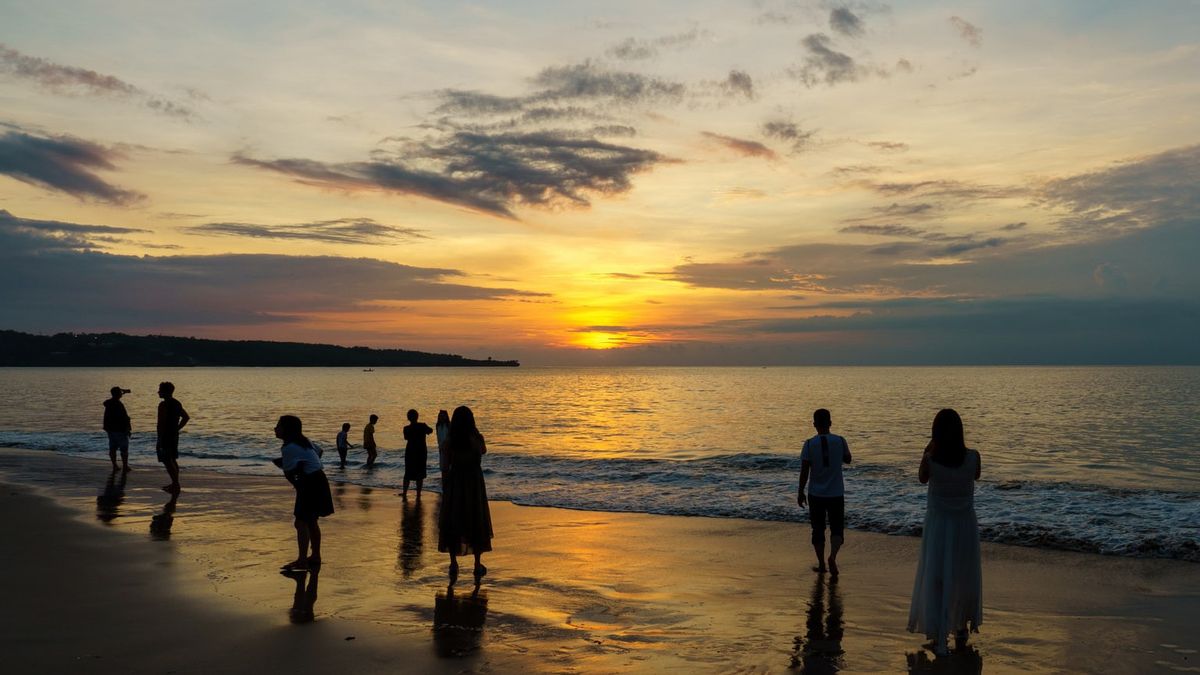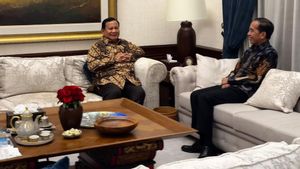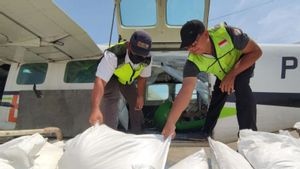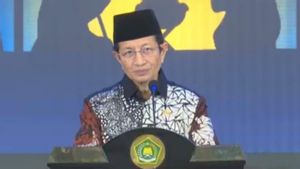JAKARTA - The Indonesian government through the Ministry of Foreign Affairs has decided to prohibit entry to foreign nationals (WNA) from all countries from January 1 to January 14, 2021. Even so, this policy is considered to have no significant impact on the national economy.
As is known, the COVID-19 pandemic has changed the order of human life. Especially in the economic sector. In fact, the government was forced to change its 2020 economic growth projection to a more realistic figure.
Minister of Finance (Menkeu) Sri Mulyani said that the Indonesian economy in 2020 is predicted to be minus 1.7 percent to minus 2.2 percent, from the previous projection which was estimated to be minus 0.6 percent to minus 1.7 percent.
According to him, since the beginning of March 2020, when the pandemic first broke out in Indonesia until now, economic growth was beyond the government's expectations.
Primarily, economic growth is sloping due to lower household consumption growth. This is in line with the weakening of people's purchasing power.
Restrictions on foreign visits will certainly have an impact on the domestic tourism sector. This is because during the Christmas and New Year 2021 holidays, Indonesia receives more foreign tourist visits than usual.
Even so, Coordinating Minister for Maritime Affairs and Investment Luhut Binsar Pandjaitan said the tourism sector could still survive without relying on foreign tourists. Moreover, domestic tourist visits have reached 85 percent during the COVID-19 pandemic. This of course can also move the economy in tourist areas.

"We still use domestic tourism. Because our domestic tourism is almost 85 percent of our control. Now we want to reduce it. Don't be too fast, if it's too open, there will be no discipline. Later the case will rise again. This must be understood," he said, Friday, December 18.
Entrepreneurs Call There Is No Significant ImpactChairman of the DPD Association of Indigenous Indonesian Entrepreneurs (HIPPI) Jakarta Sarman Simanjorang welcomed the government's decision to close access to foreigners from all countries. He considered that the government's move was right.
According to him, in the midst of this difficult situation the government must be pro-active in anticipating it. Moreover, considering the current number of COVID-19 cases in Indonesia continues to increase.
Regarding whether the temporary closure policy for foreigners will affect the business sector in the country, he said, it would not have a significant impact on the economy.
The reason is that foreigners who are prohibited from entering Indonesia will not affect the export-import or flow of goods. That way, the country's business sector will not have much of an impact.
[/ read_more]
Furthermore, Sarman said, precisely if the government continues to open the door for foreigners, it will have the potential to spread new types of COVID-19 variants into Indonesia. The opening will further threaten Indonesia's economic future.
"Because what is prohibited, people will not affect the export-import or the flow of goods including international flights because various countries are still closing their international flights. Even if they are opened, they will use strict health protocols including a 14-day quarantine obligation. Although there is an impact (business), it is not so significant. , "he said, when contacted, Tuesday, December 29.
Contacted separately, economist Indef Bhima Yudhistira assessed that closing the entrance to foreigners to the country was the right policy.

Even so, said Bhima, the government also needs to diversify the export market to alternative countries, namely countries with a decreasing number of COVID-19 transmission. This is because European countries are quite large trading partners for Indonesia when it is starting to be infected with a new variant of the COVID-19.
As is known, the temporary closure of access for foreigners to Indonesia was carried out following the existence of a new variant of COVID-19, which according to various scientific data has a faster spread rate.
For foreigners who arrived in Indonesia before December 31, 2020, the rules in accordance with the provisions in the addendum to the COVID-19 Handling Task Force Circular Number 3 of 2020 will be enforced.
First, foreigners show negative results through the RT-PCR test in the applicable country of origin, a maximum of 2 times 24 hours before departure. In addition, they are also required to attach the letter to the Indonesian international health examination or e-HAC.

Second, upon arrival in Indonesia, each foreigner must re-examine the RT-PCR. If the result is negative, the foreigner must still be quarantined for 5 days from the date of arrival.
[/ read_more]
The English, Chinese, Japanese, Arabic, and French versions are automatically generated by the AI. So there may still be inaccuracies in translating, please always see Indonesian as our main language. (system supported by DigitalSiber.id)










